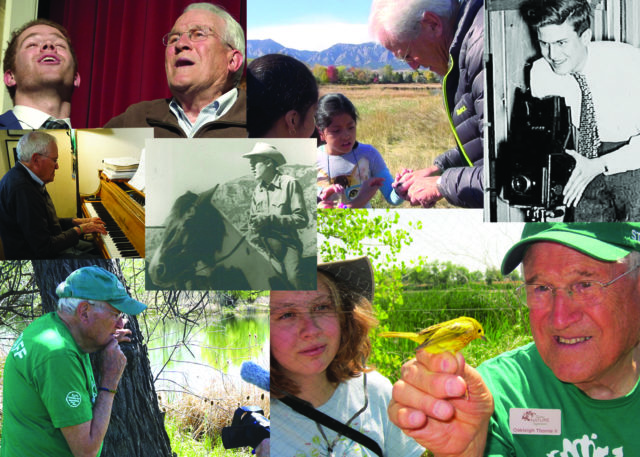
Not even the pandemic could upset the Boulder International Film Festival. Back in 2020, BIFF was one of the last times local moviegoers had a chance to get together before locking down one week later. In 2021, festival directors Kathy and Robin Beeck pushed the fest to June, took advantage of warmer weather and incorporated some outdoor screenings. But this year, back in its normal weekend, March 3-6, BIFF will once again take over the usual venues (Boulder Theater, Boulder High School auditorium, eTown Hall, Century Boulder and Grace Commons Church) to present 55 movies from 18 countries. And, as you may have noticed, Boulder County has lifted the indoor mask mandates. We’ve said this before, but it feels a bit different this time. Might this be normality?

BIFF will certainly look familiar. If you’ve been to BIFFs past, then you’ll find many of your favorites this year as well: CineCHEF, the Adventure Film Pavilion, nightly parties, live music, lots of good movies and celebrities. At the top of that list is the 2022 Academy Award nominee for Best Actor, Javier Bardem, who will be honored with BIFF’s “Outstanding Performer of the Year” award for his portrayal of Cuban bandleader turned entertainment mogul Desi Arnaz in Being the Ricardos.
Bardem won’t be the only celebrity on hand this weekend as BIFF welcomes Alec Baldwin as the festival’s Special Guest Programmer—a first for the fest. Baldwin’s picks include the 1964 Cold War satire, Dr. Strangelove or: How I Learned to Stop Worrying and Love the Bomb (a movie that has never gone out of fashion but grows more prescient by the minute), the 2009 Peabody award-winning documentary The Most Dangerous Man in America: Daniel Ellsberg and the Pentagon Papers and 2021’s loving look at America’s most famous chef, Julia. Excellent choices, all three, but the real treat will be to hear why they made Baldwin’s list. Everyone loves to tell you what movies you should watch, but recommendations are different when someone who has devoted their life to the craft suggests a title or two.

Then there are the celebrities of the local kind, and if you’ve spent enough time in Boulder, there’s a good chance you’ve either met Dr. Oakleigh Thorne II—Oak to his friends—or partook in his good work. Years ago, I had the pleasure of serving as the Conference on World Affairs’ Film Committee chair. That’s where I met Oak, who co-chairs the Science & Nature Committee. Oak is wonderful company, soft-spoken and good-humored, but unlike most, he isn’t in a hurry to tell you everything he’s accomplished in his life. Not that he’s embarrassed or shy, it’s more humility than anything else. I guess that’s why he never told me he used to make educational films about nature, hundreds of them: Silent film loops sent to schools everywhere. That was back in the 1960s and ’70s and was probably the first time those kids got a close look at an animal in the wild.
But if Oak were to sit me down and list his many accomplishments, it would take days. Thankfully, directors Christine Anderson and Pamela Hoge did just that, distilling it into the documentary Mighty Oak, the story of a kid from Long Island who grew up, discovered the beauty of nature and conservation, went to Yale—he’s a Whiffenpoof, for crying out loud—moved to Boulder in the early 1950s and became one of the area’s leading activists for nature preservation.
Oak is a delight. To spend any amount of time in the presence of someone this accomplished and affable is time well spent, and though Mighty Oak might not have the production value of some of the other movies playing BIFF, I don’t think you’ll mind. You’ll probably just want to hang out with Oak a little longer.

A few more to seek: After Love, a wonderful and slightly sad British drama following Mary Hussain (Joanna Scanlan, excellent), a 60-year-old widow who starts digging into her late husband’s life and learns a lot more than she bargained for. The documentary The Automat from Lisa Hurwitz (in person) is a loving look at Horn & Hardart’s Automats—a 20th-century institution that you’ll wish never went out of style. And then there’s Exposing Muybridge from documentarian Marc Shaffer (also in person), an investigation of Eadweard Muybridge, the 19th-century photographer whose studies of animal and human locomotion laid the foundation for motion pictures. That part you may know, but there is much of Muybridge to discover. Including the possibility that photography, even from its earliest days, has been susceptible to fakery. We’re not so removed from the past now, are we?














